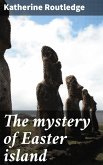In "The History of Lapland," Johannes Scheffer presents a meticulous exploration of the culture, geography, and customs of the Sv°mi people, the indigenous inhabitants of the Lapland region. Written in the 17th century, Scheffer's work stands out for its detailed ethnographic account, where he combines narrative keenly influenced by humanist ideals with a scientific observation of nature. The book not only serves as a cultural history but also initiates a dialogue on the interaction of folklore and contemporary perspectives during a period marked by colonial expansion and scientific curiosity. Johannes Scheffer, a professor at the University of Uppsala, was deeply influenced by the Enlightenment's emphasis on empirical observation and rationalism. His pursuit of knowledge about the northern regions, spurred by both academic and exploratory interests, urged him to undertake a journey that culminated in this comprehensive volume. Scheffer's interactions with the Sv°mi people and his commitment to understanding their way of life reflect a broader intellectual curiosity characteristic of his time. "The History of Lapland" is highly recommended for readers interested in early ethnography, cultural anthropology, and the historical context of indigenous studies. Scheffer'Äôs rich descriptions and thoughtful analyses provide illuminating insights into a world that is both foreign and fascinating, making it an essential read for scholars and enthusiasts of northern European history.
Dieser Download kann aus rechtlichen Gründen nur mit Rechnungsadresse in A, B, BG, CY, CZ, D, DK, EW, E, FIN, F, GR, H, IRL, I, LT, L, LR, M, NL, PL, P, R, S, SLO, SK ausgeliefert werden.









